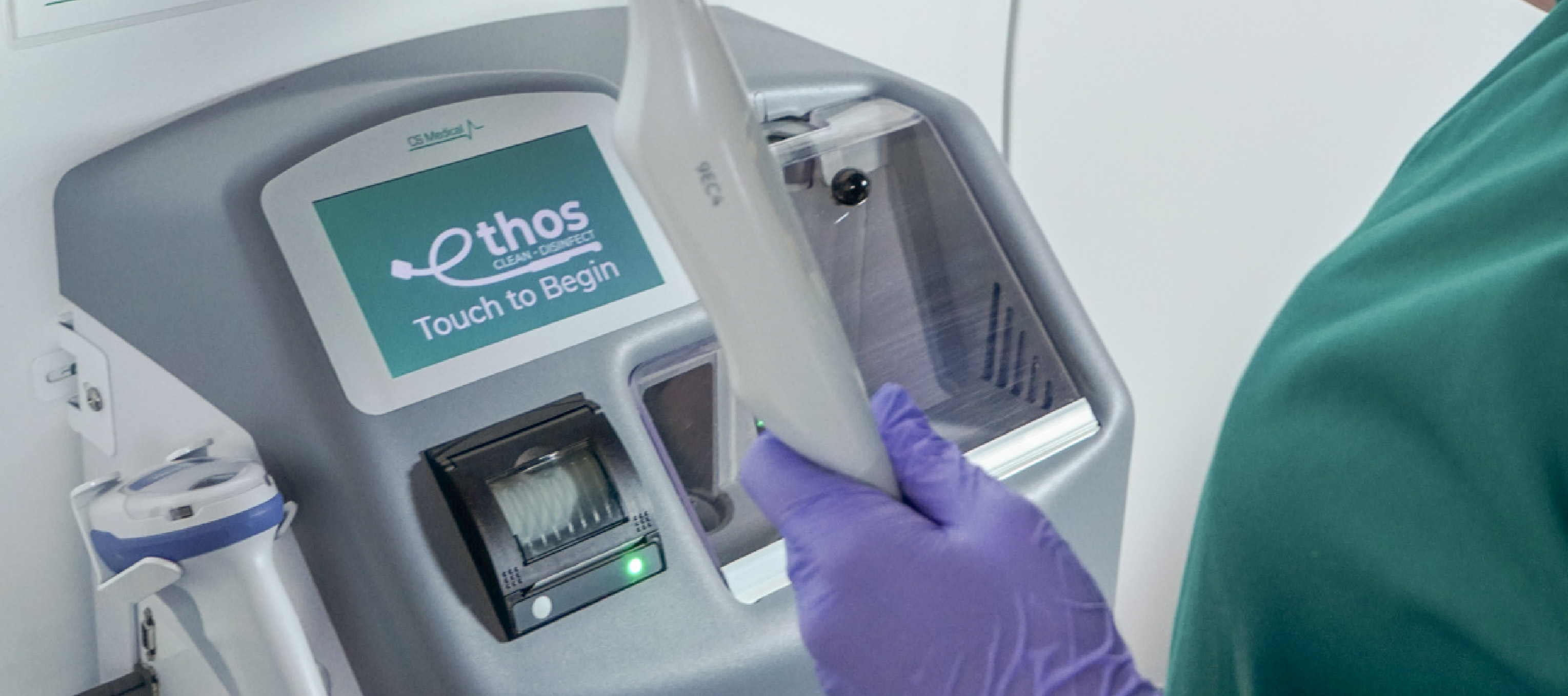Overview
As the leading developer, manufacturer, and marketer of medical devices designed to provide high-level disinfection of ultrasound probes, CS Medical continues to innovate through superior technologies and products. We are committed to providing the best possible solutions for infection prevention that support healthcare professionals worldwide.
CS Medical goes beyond cleaning and high-level disinfection of endocavity, surface and TEE probes, CS Medical believes in managing the quality of care given to delicate ultrasound probes. Our TEE Complete Care® and Complete Probe Reprocessing® offering provides solutions for the healthcare facility to minimize endocavity, surface and TEE ultrasound probe damage and reduce the potential of contaminating cleaned and high-level disinfected probes prior to use. These products address the following areas: bedside cleaning, point of care cleaning, cleaning and high-level disinfection, low-level disinfection, electrical leakage testing, drying, transporting and storing the endocavity, surface and TEE ultrasound probe. Our objective is to manage the care given to each endocavity, surface and TEE probe thus allowing for a reduction in healthcare associated infections.
General - FAQS
A: Yes, CS Medical products, TD 100, TD 200, TEEClean, and Ethos are all HIPAA compliant. Our devices do not retain any Protected Health Information nor individually identifiable health information. Our devices only retain performance data to aide in the demonstration of device performance. The TD 100 and TD 200 provide printed information on device performance while the TEEClean and Ethos offer both printed and a system download to USB of performance data.
A: IFU (information for use) and MIFU (Manufacturer's instruction for use) should be obtained from individual medical device manufacturers and they should provide detailed information on which disinfectants and cleaners are compatible.
A: Bioburden is the level of microbial contamination or microbial load; the number of microorganisms contaminating an object. Bioburden, in relationship to patient care, includes both microscopic debris and debris that is visible to the naked eye and refers to tissue, body fluids, bacteria, or any other biologic material present on, or in, an instrument or device after use on, or in, a patient.
A: Biofilms are groups of microorganisms (organic matter in the form of serum, blood, pus, fecal material or lubricant material and inorganic matter in the form of mineral material such as salt, iron, and calcium salt) that attach themselves to the surface of the ultrasound probe and develop a barrier, making them highly resistant to disinfection and removal. Organic material absorbs germicidal molecules and inactivates them.
A: Intracavity probes (transesophageal, transvaginal, transrectal) are classified as “semi-critical” and require high-level disinfection after cleaning the probe.


